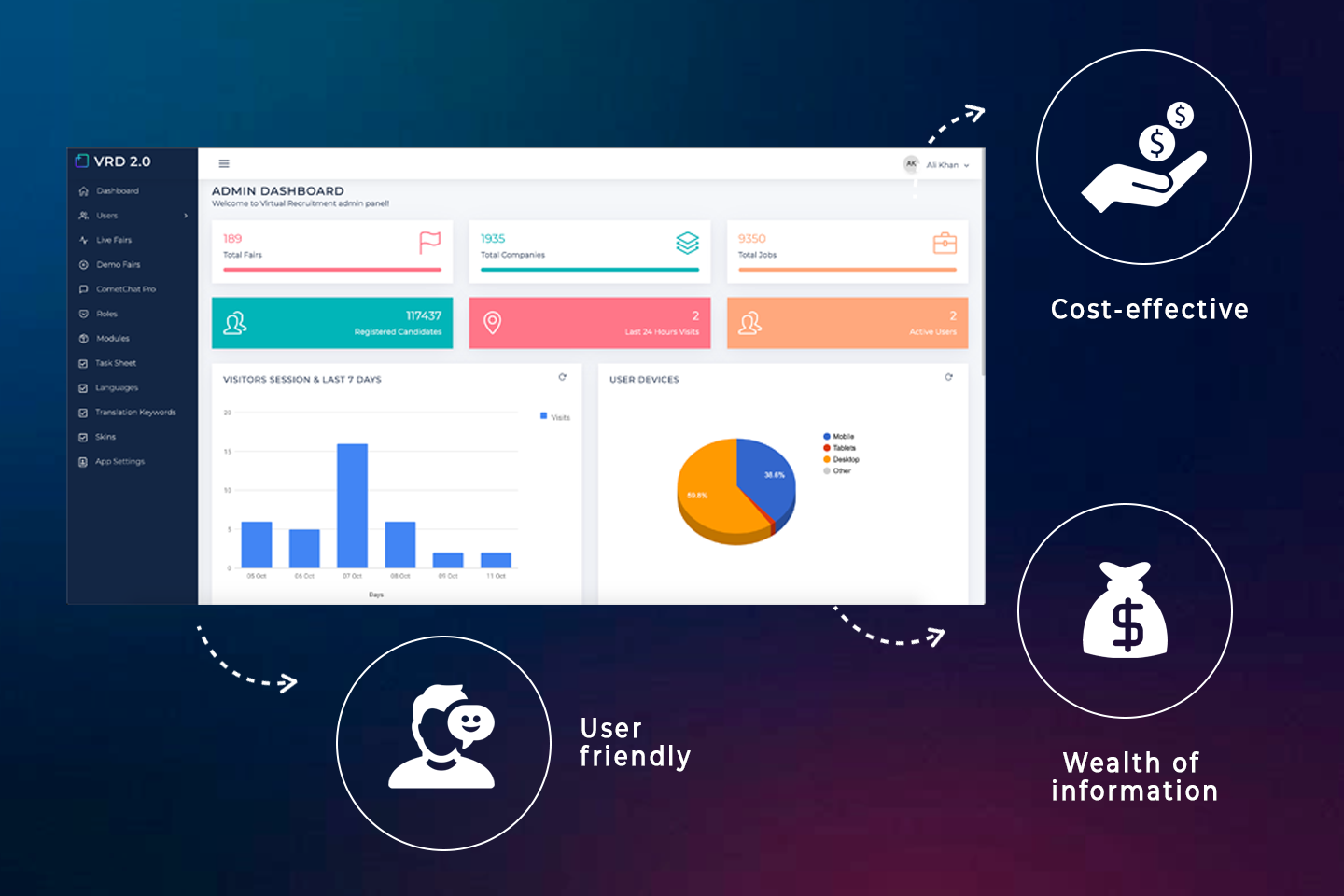Wondering how to gauge the success of your virtual event? In today’s competitive event landscape, it’s crucial to track key performance indicators (KPIs) to assess its overall impact. From setting goals to planning and execution, hosting a virtual event entails considerable effort. However, by monitoring specific metrics, you can determine whether your event was a resounding success. For instance, imagine you are hosting a virtual job fair. Determining the success of your virtual event hinges on the number of applicants and their engagement levels. A high turnout of applicants signals a successful event, while a low turnout indicates otherwise. Tracking these metrics helps gauge the effectiveness of your event and its impact on your recruitment efforts.
Previously, manually tracking data at physical events was a daunting task. However, virtual events platforms have revolutionized event tracking by enabling quick and accurate calculation of event metrics. These platforms allow organizers to input key performance indicators (KPIs) and automatically track data within the system. This streamlined process simplifies tracking progress and assessing the overall return on investment (ROI) of the event. Gone are the days of tedious documentation, as virtual event platforms provide comprehensive analytical reports. For example, when hosting an employee networking event, tracking attendee engagement is crucial for determining event success. Metrics such as attendee participation in event segments and overall engagement rates help evaluate the effectiveness of the event.
9 Ways to Measure Virtual Event Success
As an event planner, you must first chalk out your event’s goals, agenda and KPIs. This shall help build a clear virtual event strategy. But you need to ensure that your event metrics are; measurable, specific, realistic, achievable and time-bound. Rest, an automated system records the success factors and creates a complete success report. Here’s a list of event metrics that define virtual event success in one way or another.

-
- Event Registrations Recorded at Landing Page: The number of registrations directly reflects the interest and potential turnout for your event. A user-friendly landing page encourages seamless registration, showcasing your event’s appeal and driving engagement. Analyzing registration rates helps predict event success and guide marketing efforts.
- Number of Sign-ups on the Event Day: Real-time sign-up data provides insights into attendance and audience preferences. By tracking sign-ups for different segments, you can identify popular topics and tailor future events to meet audience demand effectively.
- Attendee Engagement at Booths or Speaker Sessions: Engagement metrics, such as webinar visits and booth activity, gauge audience interaction and satisfaction. Automated tracking systems ensure accurate data collection, enabling organizers to evaluate event success in real-time and optimize attendee experience.
- Direct Website Traffic Throughout the Event: Monitoring website traffic during and after the event reveals brand visibility and post-event engagement. An event-specific landing page with clear CTAs directs attendees to explore products/services, enhancing post-event interactions and lead generation.
- Conversion Rates at the Live Event: Virtual events aim to expand reach, generate leads, and drive conversions globally. Analyzing conversion rates during the event provides insights into attendee interest and purchase behavior, ultimately measuring event success in terms of ROI.
- Results from Polls, Questionnaires & Quizzes: Live polls, Q&A sessions, and quizzes facilitate audience engagement and feedback collection. Post-event surveys gather insights into event segments, speaker sessions, and attendee satisfaction, guiding improvements for future events.
- Social Media Engagement Metrics: Leveraging social media platforms enhances event visibility and audience engagement. Tracking metrics like likes, comments, and shares provides valuable insights into event buzz and audience sentiment, contributing to overall event success.6
- Amount of Revenue Generated: Calculating revenue from ticket sales, sponsorships, and other sources measures event success in financial terms. Real-time metrics reports offer valuable insights into lead conversion, sales performance, and overall profitability.
- Feedback From Post-event Surveys: Post-event surveys capture attendee feedback and satisfaction levels, informing future event strategies and improvements. Direct input from attendees helps organizers identify strengths and areas for enhancement, ensuring continued event success.
Final Thoughts
In conclusion, leveraging real-time analytics is crucial for accurately measuring the success of your virtual event. With comprehensive and precise reports provided by virtual platforms, you gain valuable insights into the event’s return on investment (ROI). However, it’s essential to note that the effectiveness of your event metrics depends on the nature of the event itself.
To ensure optimal outcomes, it’s imperative to establish clear objectives, agendas, and key performance indicators (KPIs) from the outset. This strategic approach enables you to steer your event in the right direction and achieve your desired outcomes efficiently.
Virtual Days Platform welcomes event organizers to host successful virtual events. From start to finish, our virtual events platform helps you track the event’s progress and overall impression. So take a quick demo of our platform features, and let’s start planning your next event.






